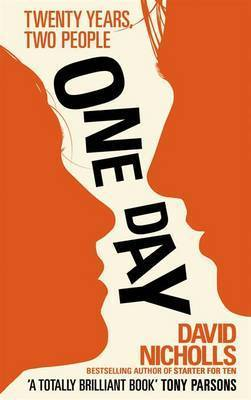Opposing Viewpoints: Cheating in Relationships

Give Them a Chance
Andrew Cooper
Cheating is a horrible thing to experience. It can make people feel guilty or hateful towards individuals or society in general. While dishonesty is toxic to a relationship, you should not leave your cheating partner. Most relationships end because of cheating, but many times the person who cheated is confused, bored, or stressed. By simply abandoning those who cheat, you give them a chance to ruin another person’s life without educating them on how to fix their mistake.
If you immediately dump a cheater, they will most likely go into the world ready to betray another unsuspecting victim without learning a single thing. Although you want the person to feel shame for what they did, they actually need positive advice on how to handle relationships better.
According to divorce statistics studied by a 1999 study in the Journal of Social and Personal Relationships, about 17 percent of divorces occur because one of the partners cheated. According to an article published by the Washington Post to debunk some myths about cheating, a large percentage of men (25% in some studies and up to 70% in others) admit to cheating on their wives, and another study found that two out of three women are not aware of their husband’s affair. About 50 to 60 percent of women admitted to having an affair. These stats need to change, but this can’t happen if cheaters are never shown how much damage they cause to their significant other.
Cheaters can’t learn if we neglect them as soon as we find out the bad news. They need positive criticism and a right mindset in order to function better in a relationship. An unhealthy relationship occurs when two people are engaged in a strong relationship, but one or both of them are not satisfied with their commitment. This dissatisfaction can range from one person dominating the relationship, to a lack of communication, to an urge for something different. If people communicated their needs to each other, perhaps the cheating problem would decrease.
Overall, there are many reasons why cheating is so present in our society. At the end of the day, many people who were cheated on get caught up in their feelings and just want their “lover” out of their lives permanently. This shouldn’t happen because if it does, more chaos will erupt in others’ relationships for the same reason. We can all agree that cheating is a bad thing for both sides of a relationship, but we need to fill the cheater’s head with positive insight and advice, rather than hate and negative criticism. If we do this, cheating will be less of a factor and many people will be in that “perfect” relationship they dream of having.
Sources:
https://www.washingtonpost.com/opinions/five-myths-about-cheating/2012/02/08/gIQANGdaBR_story.html
http://www.divorcestatistics.info/latest-infidelity-statistics-of-usa.html
http://magazine.foxnews.com/love/cheating-statistics-do-men-cheat-more-women
http://www.menstuff.org/issues/byissue/infidelitystats.html
Cheaters Never Prosper
Emily Turner
Trust is the foundation of every healthy relationship. It is reliability. It is security. But what happens when that trust is broken? While some may think that their partners can do no wrong, plenty of people make the choice to cheat on their significant other every day. But what happens after the gig is up? Should you give the person you love most a second chance? No. Here’s why . . .
When you fall in love, endorphins are released in your brain. You grow used to having that person there, and in a strange way, become addicted to their affection. After discovering that your partner has cheated, your brain’s neural network slowly and painfully forces itself to switch back to the way it was before.
Mental recovery from these sorts of events is a long and excruciating process. Do you want to be with somebody who caused you so much pain? The constant anxiety of whether or not they’ve cheated before, and the paranoia of wondering what they are constantly doing should be reason enough not to let them stay close to you.
If scientific reasoning can’t take people off of Cloud 9, then perhaps statistics can pull your head out of the clouds about cheating. About twenty five percent of men cheat in a marital relationship, according to a study from the University of Chicago (although there are lot of studies out there with a lot of different statistics). About 40 to 50 percent of marriages end in divorce. Approximately 41 percent of those divorces are because of cheating. Given these statistics, people may think that cheating isn’t a big deal since so many people do it, but if you think that the lies stop after you tie the knot, you would be wrong.
If your partner is willing to lie to you about one thing, what’s to stop them from lying to you about anything else, from small things like “yes, I walked the dog” to big things like “I’ve never been bankrupt.”
Cheaters exist in all forms, but that doesn’t mean you have to put up with any of them. Moral of the story: Don’t trust those who lie to your face, and don’t stay with people who purposefully cause you harm.
Sources:
https://www.washingtonpost.com/opinions/five-myths-about-cheating/2012/02/08/gIQANGdaBR_story.html
http://www.cheating-infidelity.com/Home/cheating-and-infidelity/cheating-and-brain.html















